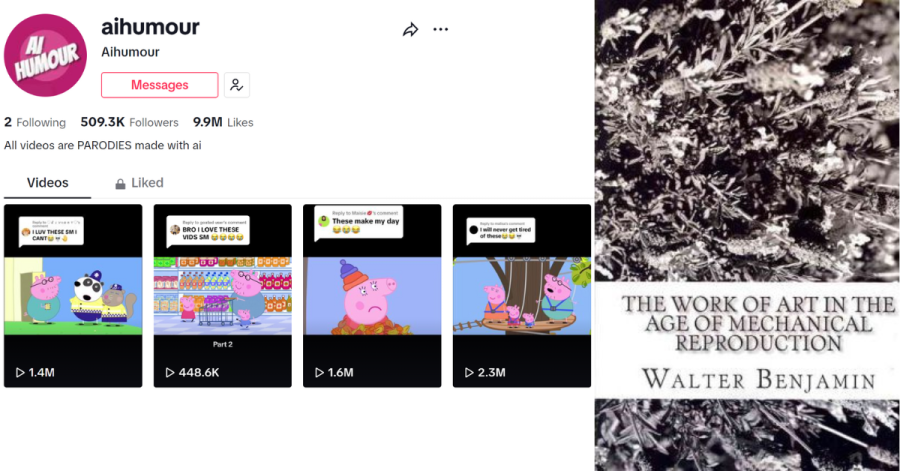The Culture Industry explores ‘The role of mass entertainment to control the disillusionment of the masses’. For Adorno and Horkheimer, the culture industry meant āthe commodification of art forms which now succumbed to the production methods and sales techniques of mass-productionā (Scanell, 2007). Art forms becoming a commodity means that art no longer is used solely for entertaining or being created by a small team and is now mass created by large production companies. As well as this, art could even be used as a form of propaganda in order to manipulate society to think certain things.
The capacity to experience is shrinking in a technologised world which means that technology is taking over our lives so much that it is taking away our ways of experiencing things. In his book āThe Work Of Art In The Age Of Mechanical Reproductionā, Walter Benjamin describes this sensation as there being a loss of aura: āthe whole sphere of authenticity eludes technological āand, of course, not only technological ā reproducibilityā (Arendt, 1969). This means that technology takes away authenticity. The loss of authenticity is a negative impact of technology due to the fact that art ends up feeling fake and robotic when the whole reason audiences like art is due to the fact that they find it relatable. This is due to the fact that the person who created the art in the first place felt the feeling strong enoughand was able to capture how they feel in order to write down their feelings in order to recreate and re-birth it into an art form which can be enjoyed by many. The pure beauty of art in 2023 gets replaced by creations by various forms of AI like chat gpt and AI that can reprogramme cartoons which is truly ruining viewing pleasures and experiences.
Research has enabled me to come across the fact that on TikTok, there are AI-created adult Peppa Pig episodes which truly ruin the beauty of Peppa Pig and childhood – instead of the characters being sweet and innocent pig cartoons, they have been turned into rude and angry characters. While the TikTok creators who had the idea to do this to the childrens cartoon probably meant no harm and just wanted to have some fun and some people may enjoy the episodes, it is taking away the talent, time and effort that had to go into creating the original childrens episodes. As well as this, itās taking jobs away from the voice actors and creative teams – their jobs have been replaced by AI in order to create these parodies. Itās also taking away from the beauty of the episodes that the stories were made by a human writer who wanted to create a show for children.
The show was created by āAstley Baker Davies; an independent animation studio based in Londonā¦ Animators Neville Astley and Mark Baker were the co-founders of the animated series.ā (Paultons Parkās Marketing team, 2022). The fact that Peppa Pig was created by independent animators, who have their own independent animation studios, who have been creating shows since ā31 May 2004ā (Paultons Parkās Marketing team, 2022), shows how much technology and AI are affecting the culture industry and allowing authenticity and auras from independent creators to be lost since they are now easily replaceable.
Reference List:
- Scanell, P. (2007) Media and Communication
- Arendt, H. (1969) The Work of Art in the Age of Mechanical Reproduction
- Paultons Parkās Marketing team (2022) The History of Peppa Pig.

